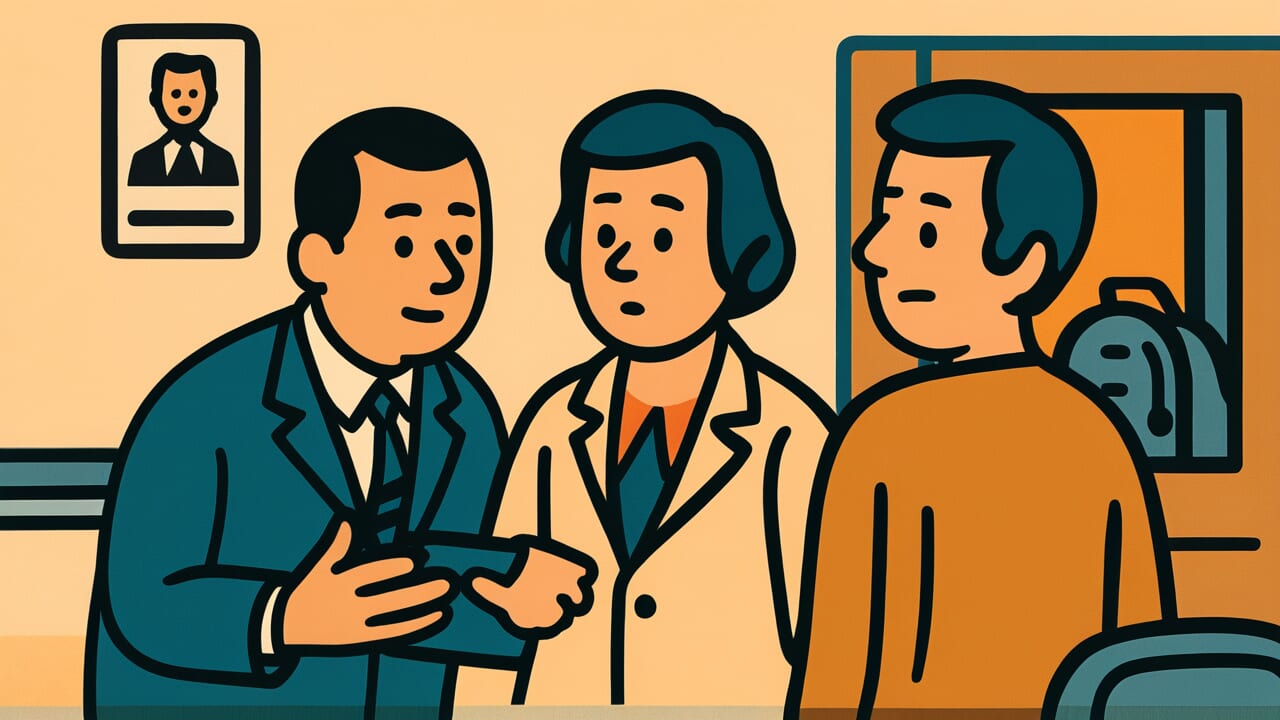How to Read “Another’s mistake, my happiness”
Hito no ayamachi waga shiawase
Meaning of “Another’s mistake, my happiness”
This proverb expresses a hidden truth about human nature. When someone else fails or faces misfortune, we sometimes benefit from it. Deep down, we might feel relieved or even happy about this.
Of course, we can’t say this out loud. But the feeling exists. When a rival fails, our ranking goes up. When a coworker makes a mistake, our own performance looks better by comparison. These situations trigger a quiet sense of relief or joy inside us.
People use this proverb when they become aware of these feelings in themselves. On the surface, we say “That’s too bad” with sympathy. But inside, we think “This works out well for me.” The proverb captures this contradictory emotion honestly.
This isn’t a feeling to be proud of. But it’s a very human one that anyone can experience. Even today, this psychology appears in competitive situations like entrance exams, job hunting, and promotions.
Origin and Etymology
No clear historical records document the origin of this proverb. However, the structure of the phrase itself offers interesting insights.
“Another’s mistake, my happiness” uses a parallel structure. “Another’s” contrasts with “my.” “Mistake” contrasts with “happiness.” This parallel construction forms the core of the proverb’s meaning.
This structure appears frequently in traditional Japanese sayings and teachings. It makes the phrase easy to remember and leaves a strong impression on listeners.
The proverb likely emerged from observations of human nature in competitive society. It sharply points out a duality in people. We pretend to feel sorry when others fail. But inside, we’re glad our relative position has improved.
The phrase carries an important assumption: “You can’t say this out loud.” This shows the proverb isn’t celebrating malice. Instead, it objectively observes and puts into words the dark emotions that lurk in human hearts.
The saying probably arose from the common culture of the Edo period. People back then had a sharp eye for the gap between what others said and what they truly felt. This insight into human psychology remains universal even today.
Usage Examples
- When I heard that my rival store closed down, I felt ashamed for thinking “Another’s mistake, my happiness”
- I got promoted because my colleague failed – it’s truly “Another’s mistake, my happiness”
Universal Wisdom
The proverb “Another’s mistake, my happiness” brilliantly captures a dark truth about the human heart. Why was this phrase created and passed down through generations? Because this emotion exists universally across all eras.
Humans are social creatures who constantly live by comparing themselves to others. We feel joy from relative advantage more than absolute happiness. Even if our salary increases, we feel dissatisfied if others’ salaries increase more.
Conversely, even if our situation stays the same, we feel relieved when others fall behind. This psychology may be rooted in human instinct that evolved through survival competition.
The depth of this proverb lies in how it doesn’t deny these feelings. It doesn’t preach “You shouldn’t think this way.” Instead, it acknowledges “This is how humans think.” By positioning this as something “you can’t say out loud,” it quietly indicates an ethical boundary.
No one is a perfect saint. We all harbor ugly emotions sometimes. But recognizing and controlling them is what true humanity means. This proverb acknowledges human weakness while quietly asking how we should face it.
When AI Hears This
This proverb actually describes a special mathematical situation called a “zero-sum game.” In zero-sum games, all participants’ gains and losses add up to zero. In poker, if someone loses 100 yen, someone else must gain 100 yen. In this world, “Another’s mistake, my happiness” truly applies.
But here’s what’s interesting. Most of real society consists of “non-zero-sum games.” Situations where everyone gains simultaneously or everyone loses are far more common. If a coworker makes a mistake and the company’s reputation suffers, your salary and bonus are affected too.
Even if a rival company has a scandal, distrust of the entire industry grows and your company’s sales may drop. Economic research estimates that over 80 percent of situations in today’s interconnected society are non-zero-sum.
People who believe this proverb may suffer from “zero-sum thinking bias.” They assume the pie is fixed in size. If someone takes more, their share decreases. But in reality, cooperation often makes the pie itself bigger.
This proverb only applies to situations with truly fixed slots, like entrance exams or promotions where people compete for limited seats. Using it in other situations risks missing opportunities for mutual benefit through cooperation.
Lessons for Today
This proverb teaches modern people the importance of being honest about their inner feelings. When you notice yourself secretly enjoying someone else’s failure, you don’t need to deny it. Rather, acknowledging such emotions in yourself is the first step toward growth.
What matters is your actions after recognizing these feelings. Whatever you think inside, can you avoid showing it outwardly? Can you choose to help someone in trouble instead? This determines a person’s character.
Modern society is intensely competitive, and everyone carries stress. Social media constantly shows us others’ successes, increasing opportunities for comparison. That’s why we need wisdom to recognize the dark emotions lurking in our hearts and manage them well.
You too will sometimes feel the emotions this proverb describes. That’s nothing to be ashamed of. Just recognize those feelings, yet don’t forget compassion for others. Having this sense of balance is what’s required of us living in modern times.



Comments